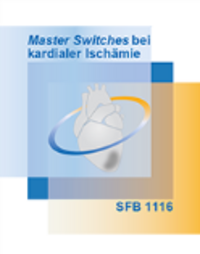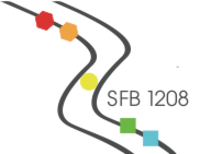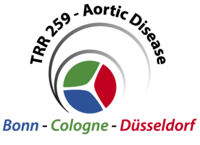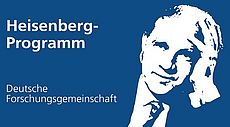


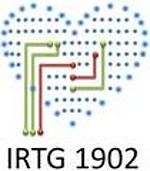
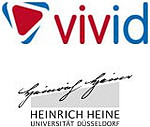
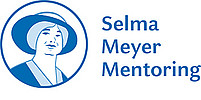
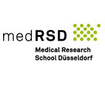
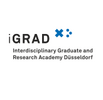
Introduction
Since the foundation of the “Academy for Practical Medicine” in 1907 cardiovascular research has been a major research focus in Düsseldorf. Briefly after the foundation of the Heinrich-Heine-University Düsseldorf (HHU) the first cardiovascular Collaborative Research Centre (CRC, “Sonderforschungsbereich”) in Germany funded by the German Research Foundation (DFG) was implemented in 1968 (CRC 30, “Cardiology”, funding until 1985). In the following five decades the Medical Faculty of the HHU succeeded to implement three further cardiovascular CRC’s (CRC 242 “Coronary Heart Disease” – 1986-1997, CRC 612 “Molecular Analysis of cardiovascular function and dysfunction – 2002-2012, CRC 1116 “Master switches in cardiac ischemia” 2015-2018). Thus cardiovascular research, together with hepatology, diabetology and environmental medicine is one strong, progressive and traditional research program of the Medical Faculty. This “tradition in innovation” is strengenthed by efficient and collaborative research activities coordinated “under one roof” (Fig. 1).
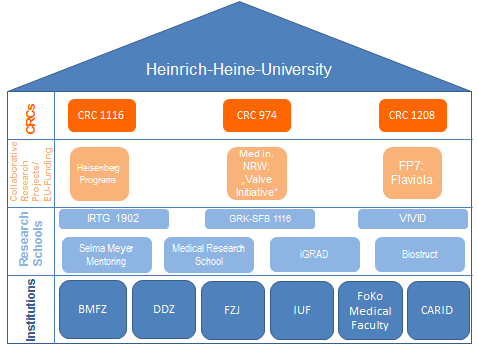
Collaborative Research Activities
CARID
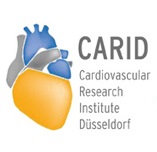
Accordingly to the long HHU-tradition in heart disease medicine the Cardiovascular Research Institute Düsseldorf (CARID) was founded in 2013 to promote experimental, translational and clinical science in this field.
This especially includes:
- To foster and to strengthen regional, national and international scientific networks with focus on the varied aspects of cardiovascular research
- To promote and to ensure the recruitment of high potential research talents with key expertise in cardiovascular science and medicine
- To facilitate the establishment of collaborative research projects, especially regarding the acquisition of new third party funding
- To create new and to enlarge already existing state-of-the-art technology platforms by ensuring the effective use of joint research equipment and joint core facilities
CRC 1116 "Master switches in cardiac ischemia"
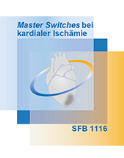
Acute myocardial infarction (AMI) is among the most frequent cardiovascular disorders in the Western world. The CRC 1116 focuses on the acute and subacute phase post AMI using preclinical approaches in standardized small and large animal models as well as clinical investigations in a multidisciplinary consortium. Aim is the identification of cardiac and systemic effector mechanisms (master switches) in the acute/subacute phase after AMI that determine the morbidity and mortality after AMI and could be used as future therapeutic targets.
International Research Training Group 1902 (IRTG 1902)
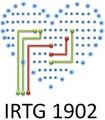
The IRTG 1902 "Intra- and interorgan communication of the cardiovascular system" is a DFG funded international research program which aims to promote international education of graduate students in a cooperation of the Heinrich-Heine-University Düsseldorf and the Cardiovascular Research Center at the University of Virginia, Charlottesville, USA. The program offers graduate student training in the framework of 11 tandem projects which are lead by a German and an American PI. The international collaboration involves a six-month research phase at the partner university. The central research idea of the IRTG is the investigation of functional and molecular mechanisms underlying intra- and inter-organ communication as a means to understand normal and pathological cell and organ function. Using a combination of high-end technology in molecular biology, proteomic research, cell biology, transgenic animals, isolated organs, and organ culture we will analyze the role of selected signaling mechanisms as the basis for communication among cardiovascular cells with other cells in close proximity such as fibroblasts, adipocytes and invading immune cells.
More information
FLAVIOLA - Targeted delivery of dietary flavanols for optimal human cell function: Effect on cardiovascular health.

The FLAVIOLA project (EU, FP-7, funding 2009-2013) employed a multidisciplinary, translational research approach to address the gaps and challenges that exist in the field of flavanol research as it relates to cardiovascular health and aging. To achieve the project goals outlined below, FLAVIOLA utilized state-of-the-art analytical techniques, rigorous and well-designed clinical studies, and the knowledge and experience of experts from academic, government, and industry partners.
Research aims of the FLAVIOLA project were to:
- Investigate the absorption and metabolism of flavanols in humans, including inter- and intra-individual variation
- Establish the levels of habitual flavanol intake in the EU
- Assessing the impact of the dietary intake of flavanols on cardiovascular function in healthy adults
- Develop a cocoa food product prototype containing flavanol for use in the context of cardiovascular health
Also after the completion of the project the consortium partner continue with a fruitful scientific exchange and effective follow-up projects.
Med in.NRW: North-Rhine-Westphalia Heart-Valve-Initiative. Developments in medical engineering for minimal-invasive, percutaneous, transluminal therapy of heart-valve diseases.

In this innovative collaborative research project Med in.NRW funding by the federal government of North Rhine Westphalia and the European Union, we succeeded to create the basis to create a patient-specific three-dimensional heart model allowing to prepare and to conduct procedures in structural heart disease such as transaortic valve replacements (TAVR). In summary the following major outcomes could be achieved:
- All imaging components (x-ray, CMR, MSCT/XperCT and 2D/3D transthoracic and transesophageal ultrasound) could be solitary segmented an adapted to patient-specific anatomical information in patients with aortic stenosis
- We are now able to generate patient specific 3D heart models from each imaging modality, capable of being introduced in other imaging modalities, such as X-ray in the first line
- For the first time we are able to generate 3D heart models from rational angiographies for planning and performing of TAVR procedures
- On the basis of our preliminary work in segmenting heart models from different imaging modalities we are now able to translate this information from 2D and 3D echo into the fluoroscopic image during interventions in structural heart disease (EchoNav®) and also CT information into the fluoroscopic image during TAVR procedures (Heart Nav®)
VIVID
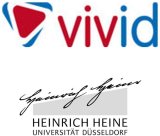
The Research Training Group vivid (funding period 2012-2015) focused on the comprehensive analysis of animal models for human metabolic diseases. Biological doctoral researchers (PhD) gained comprehensive knowledge of systems physiology, which is required for understanding the mechanisms underlying metabolic diseases, and for identifying suitable drug targets in the long term. vivid created an important framework for HHU to bring together the most talented doctoral researchers in Biology, so that they perform innovative research on human metabolic diseases by using animal models. In addition, vivid will made animal models and analysis tools of the Faculty of Mathematics and Natural Sciences, the Faculty of Medicine and the DDZ available for doctoral research. Actually an initiative was started to receive a DFG-follow up funding for this Research Training Group.
Core Facilities
CVRL - Cardiovascular Research Laboratory
The cardiovascular research laboratory (CVRL) was established in 2010. More than 800 m² of newly equipped high-end laboratories are available for translational and basic science Projects. The research groups of the individual PIs are hosted within the CVRL.
The CVRL is composed of three units:
- Cardiac and Circulatory Analysis
- Cell- and Molecular Biology
- Translational Analysis
Contacts:
Univ.-Prof. Dr. med. Malte Kelm
Univ.-Prof. Dr. rer. nat. Norbert Gerdes
Univ.-Prof. Dr. med. Amin Polzin
CTU - Clinical Trial Unit
The Clinical Trial Unit (CTU) is coordinating all clinical studies within the division of Cardiology, Pulmonary Disease and Vascular Medicine in close collaboration with the Coordination Center for Clinical Trials (Koordinierungszentrum für Klinische Studien (KKS)) at the Medical Faculty of the Heinrich-Heine University. The CTU provides the services and expertise for conducting clinical trials and is supporting the investigators and the researchers during the study set-up, the clinical part as well as during the evaluation and reporting phase.
To learn more about our clinical trials, please visit: Active clinical trials
Contact CTU:
CTU@med.uni-duesseldorf.de
Forschungskommission, Medical Faculty
The Forschungskommission coordinates on behalf of the Medical Faculty of the HHU intramural funding of excellent an internationally competitive research projects. Especially promotion of young academics and main research areas of the HHU are focused. The funding is orientated on the scientific output of the applicants, includes basic, clinical and translational research. Through the funding of the Forschungskommission young academics should be qualified to receive follow-up funding from official funding institutions like DFG or BMBF. Since 2010 the Department of Cardiology, Pulmonology and Vascular Medicine succeeded to acquire 22 projects funded by the Forschungskommission. Many of them succeeded in the subsequent acquisition of competetiv national and international third paty funding to fosten their carreer as independent scientists and group leaders.



